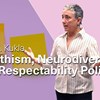philological
Peter Hedström elected a member of the Royal Swedish Academy of Letters, History and Antiquities
On the 6th of May, Peter Hedström was elected a member of the Royal Swedish Academy of Letters, History and Antiquities. The Royal Swedish Academy of Letters, History and Antiquities was founded in 175
Conference: Philosophical Perspectives on Social Injustice
Location: Institute for Futures Studies, Holländargatan 13 in Stockholm If you plan to attend all or parts of the conference, please register by sending an e-mail to [email protected] Thursday Decem
Anandi Hattiangadi: Philosophical aspects of implicit bias
Anandi Hattiangadi, Professor of Philosophy at Stockholm University. ABSTRACT Recent empirical work on implicit cognition has revealed that many of us display biases in behaviour which are unavailable t
Axiological Retributivism and the Desert Neutrality Paradox
Campbell, T. Axiological Retributivism and the Desert Neutrality Paradox. Philosophies 2022, 7, 80. https://doi.org/10.3390/philosophies7040080 Abstract: According to axiological retributivism, people canan outcome in which someone gets what she deserves, even if it is bad for her, can thereby haveintrinsic positive value. A question seldom asked is how axiological retributivism should deal withcomparisons of outcomes that differ with respect to the number and identities of deserving agents.Attempting to answer this question exposes a problem for axiological retributivism that parallels awell-known problem in population axiology introduced by John Broome. The problem for axiologicalretributivism is that it supports the existence of a range of negative wellbeing levels such that if adeserving person comes into existence at any of these levels, the resulting outcome is neither betternor worse with respect to desert. However, the existence of such a range is inconsistent with a setof very plausible axiological claims. I call this the desert neutrality paradox. After introducing theparadox, I consider several possible responses to it. I suggest that one reasonable response, thoughperhaps not the only one, is to reject axiological retributivism.

Luke Russell - What is forgiveness? On the philosophical disagreements of what forgiveness is
In this episode we are going to talk about forgiveness. Recently Luke Russel, associate professor of philosophy at the University of Sidney, held a research seminar here at the institute titled What i

Climate emotions and affective dilemmas. A psychological and philosophical study of their normative principles and the public's perceptions
An interdisciplinary projects that tries to understand the normativization of climate emotions. How "should" we feel about climate change?
Parity and Mortality: An Examination of Different Explanatory Mechanisms Using Data on Biological and Adoptive Parents
European Journal of Population, Volume 35, Issue 1, pp 63–85. doi.org/10.1007/s10680-018-9469-1 Abstract A growing literature has demonstrated a relationship between parity and mortality, but the explana
A patch to the possibility part of Gödel’s Ontological Proof
in Analysis, Volume 80, Issue 2 AbstractKurt Gödel’s version of the Ontological Proof derives rather than assumes the crucial (yet controversial) Possibility Claim, that is, the claim that it is possib
Quill R. Kukla: Healthism, Neurodiversity, and Respectability Politics
Venue: Institute for Futures Studies, Holländargatan 13 in Stockholm Research seminar with Quill R. Kukla, Professor of Philosophy and Disability Studies at Georgetown University and fellow at the SOCRAAbstract

Quill Kukla: Healthism, Neurodiversity, and Respectability Politics
“Healthism” is the pervasive ideology according to which each of us is responsible for valuing and protecting our own health and prioritizing health over other values, while society has the right to e








